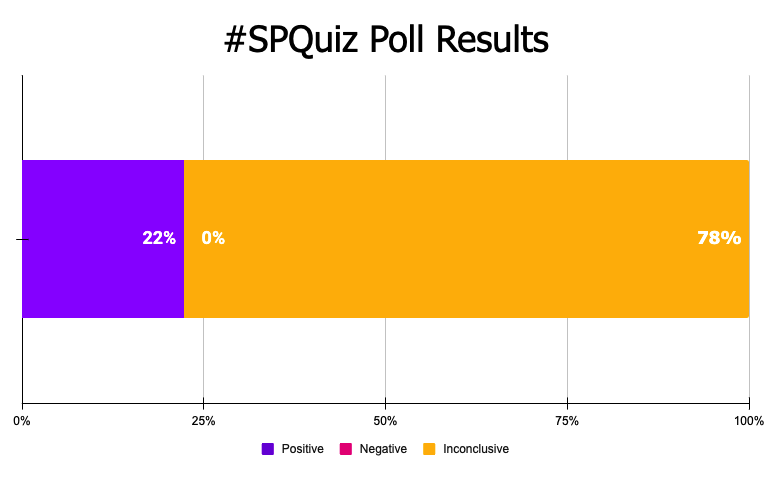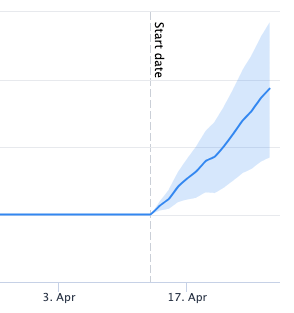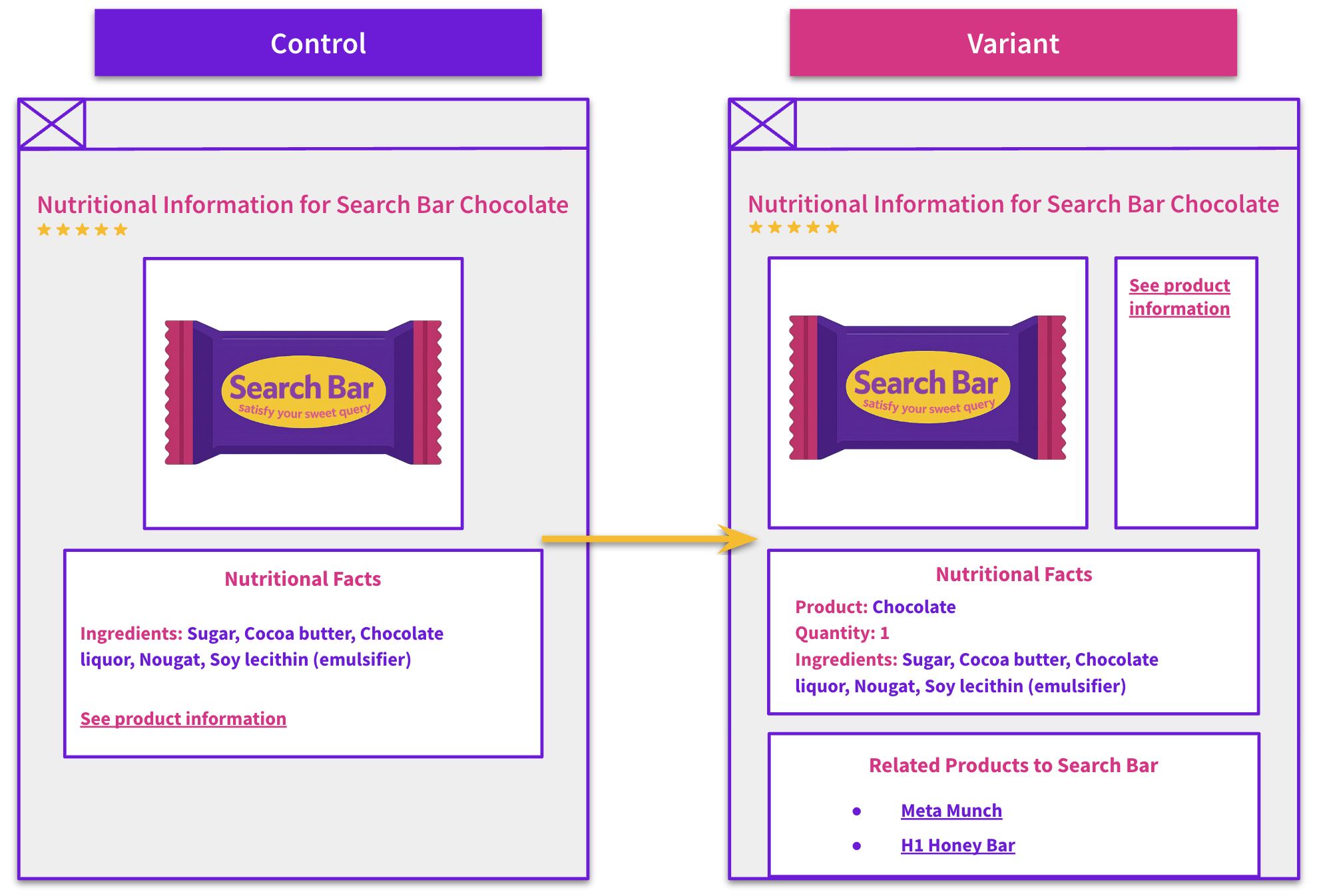Start here: how our SEO split tests work
If you aren't familiar with the fundamentals of how we run controlled SEO experiments that form the basis of all our case studies, then you might find it useful to start by reading the explanation at the end of this article before digesting the details of the case study below. If you'd like to get a new case study by email every two weeks, just enter your email address here.
On this week’s #SPQuiz, we asked our followers on Linkedin and Twitter what they thought would happen to organic traffic if we changed the capitalization of title tags before the brand name on product listing pages from sentence case to all caps.
Here's what they thought:

Only 22% of participants thought the impact would be positive, while 78% believed it would be inconclusive. As we found through testing, the impact on organic traffic was actually positive!
To learn more, read the full case study below.
The Case Study
Some may argue that capitalizing your title tags is a spammy technique but we can’t deny that capitalizing text is an option to distinguish your text and help you ‘stand out’. The real question is how would Google Search respond to this type of change? Would it hurt your organic traffic for being seen as spammy? Will Google even show these title tag changes in the search results pages?
One of SearchPilot’s ecommerce website customers decided to test whether they could benefit from capitalizing the most relevant parts of the title tags of their product listing pages. We hypothesized that these all-caps titles would stand out in the SERPs, resulting in a higher click-through rate.
We settled on a variant title tag template that only capitalized the first set of keywords in the title tag, hoping that we can influence more clicks without being detected as using keywords excessively.
This test resulted in a statistically significant and positive impact to organic traffic, with an estimated 8.5% increase in organic sections.

To our surprise, we found Google largely respecting the capitalization of our variant title tags and saw our test working as planned. In many of our tests involving title tag changes, we’ve found Google stripping out or editing parts of titles to conform to users’ search queries or to produce what it believes to be the most informative version of a page’s title.
We believe that these results were due to increased click-through rates from users who chose the capitalized titles over other results they could see in the SERPs. Capitalization may have helped distinguish our search result page listings and attract more attention.
How our SEO split tests work
The most important thing to know is that our case studies are based on controlled experiments with control and variant pages:
- By detecting changes in performance of the variant pages compared to the control, we know that the measured effect was not caused by seasonality, sitewide changes, Google algorithm updates, competitor changes, or any other external impact.
- The statistical analysis compares the actual outcome to a forecast, and comes with a confidence interval so we know how certain we are the effect is real.
- We measure the impact on organic traffic in order to capture changes to rankings and/or changes to clickthrough rate (more here).
Read more about how SEO A/B testing works or get a demo of the SearchPilot platform.


